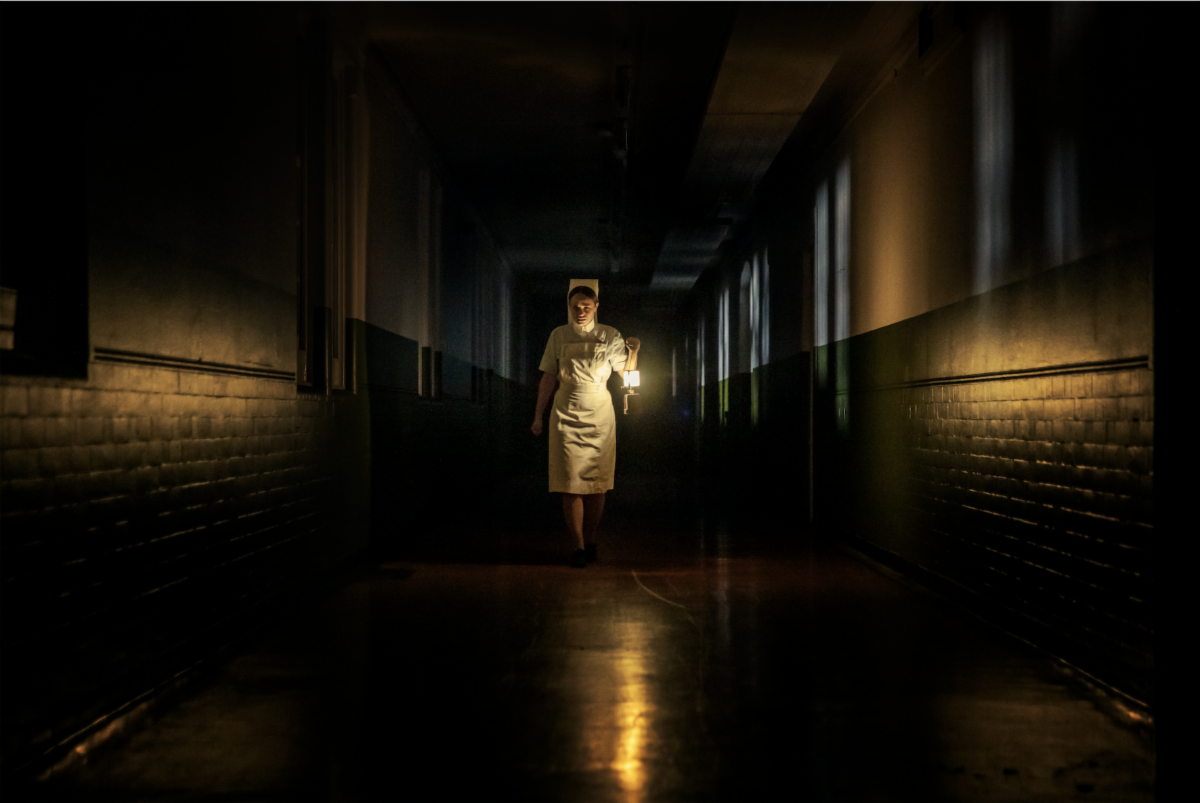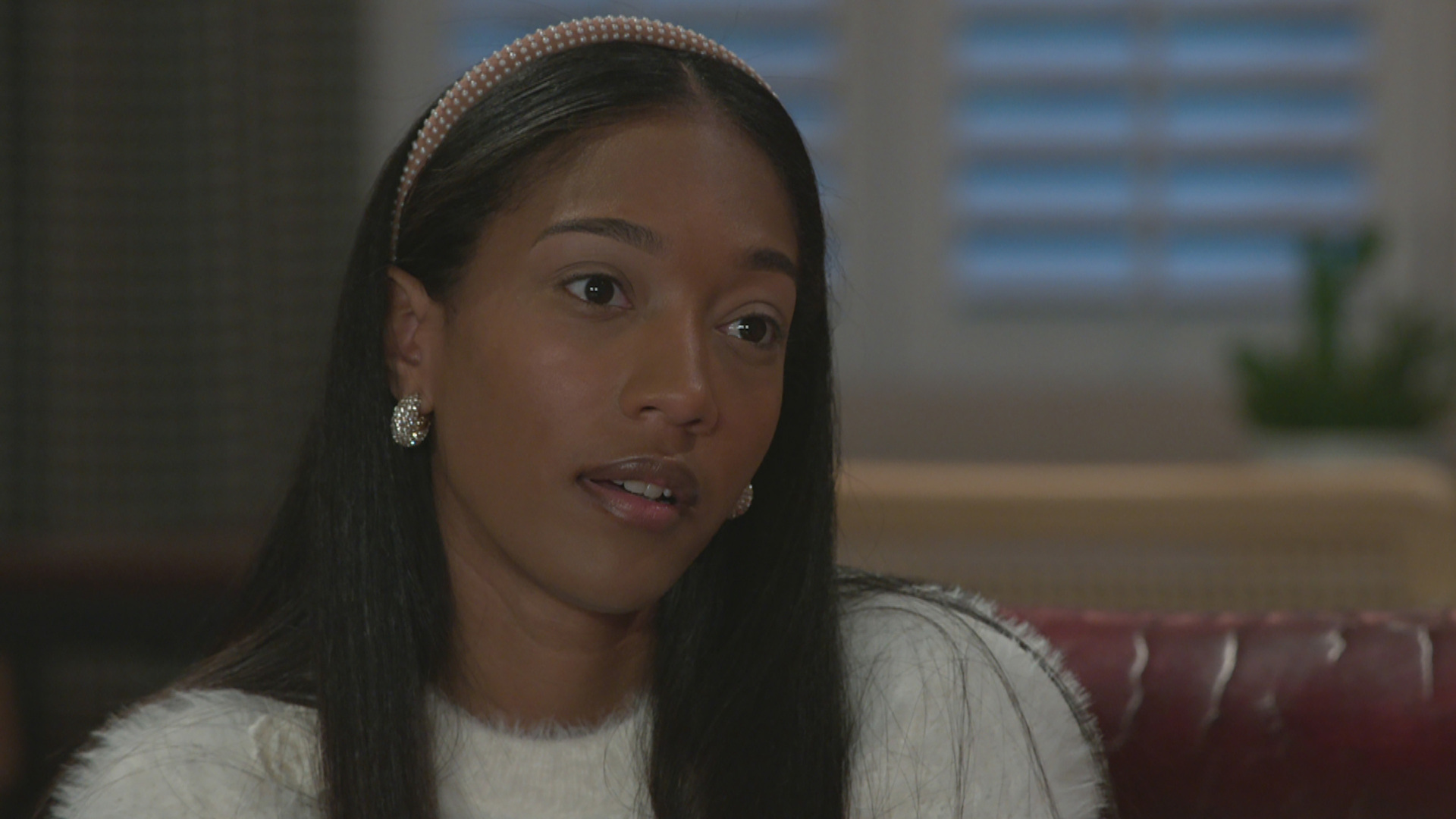What to Watch Verdict
'The Power' tackles ghosts and grotesque societal hierarchies but is always better at the latter, which may disappoint those wanting more from the former.
Pros
- +
💡 A deceptively haunted story.
- +
💡 Rose Williams shoulders a heavy performance.
- +
💡 Sticks its vocal landing.
Cons
- -
💡 Low on outright scares.
- -
💡 Supporting characters lack.
- -
💡 Bit of an issue with off-screen events.
It’s always a treat when titles like The Power take commonly associated words—”the power,” in such a case—and manipulate our expectations. As Corinna Faith’s UK chiller exploits, sanctioned blackouts plummet 1970’s London into pitch darkness after hours. You’d expect horrors akin to Lights Out given context clues, but Faith’s screenplay examines alternate representations beyond electrical “power” sources. Narrative sheepishness promotes discovery through unexpected threats, but tethers that attempt to ground shadowy frights in the devastation of oppressive human treatments and abusive assertions of gendered dominance do strain. Intentions are pure and execution ambitious albeit flawed, still exposing monsters that lurk once illumination ceases to provide safety.
Rose Williams stars as nurse-in-training Val, assigned to the “dark shift” duty on her first day/night. The “darkness” references overnight power conservation orders as trade unions and the government wage war amidst economic turmoil. Val’s desire to serve the hospital’s pediatric wing and subsequent not-so-subtle inquiry aggravates the operating Matron (Diveen Henry), so her overnight assignment is an inferred punishment. Val is left wandering around the color-coded labyrinthian facility with only a handheld lamp after most infirmed patients are transferred to another location. It's enough to make an adult quiver, and that’s before the building’s skeletons emerge from closets under nightshade covers.
Removing visibility is a standard horror genre tactic, which The Power chooses as its signature. Val’s upbringing as an orphaned child instills discomfort in darkness due to suffered trauma as a means of inherent paranoia. Such backstory permits a more straightforward journey into atmospheric terror since Val is never confident or comfortable on-screen after regular operating hours. The problem becomes Faith’s marriage between outright leap-and-creep scares and the personal, gender-centric fears notably in play. I never found myself engaged with the spectral influences that haunt the inescapably thick corridor darkness, nor overtaken by funhouse tricks with reflections in windows or generic possession angles we’ve seen stirred before.
Supporting characters are introduced as foils to Val—former classroom bully Babs (Emma Rigby) or foxlike-and-leery security monitor Neville (Theo Barklem-Biggs)—but The Power struggles with its less significant souls. Nevill’s office adorned with topless clippings and photographs of employed nurses paints an antagonist who’s tossed to the side, some for Babs’ standoffish and impolite remembrances. The way Faith begins intertwining paranormal notes dares to make us believe hospitable veteran nurses like Comfort (Gbemisola Ikumelo) or the sassy, gossipy Terry (Nuala McGowan) are trapped inside with a psychologically broken Val. Perhaps they are, even. It’s just unfortunate how Faith’s mysterious designs lend themselves more to off-camera actions and whip-quick edits that shuffle around payoffs, reveals, and other more intriguing concepts thus hidden.
Where The Power excels is with the introduction of adolescent leftover Saba (Shakira Rahman), her unlikely connection to Val, and “Dirty Gail” (Clara Read), the dubbed monster who becomes the voice guiding Val’s crisis.
To articulate precisely why The Power finds resonance in its deviation would reveal climactic twists, but it all hinges on a narrative that lays a sturdy haunted foundation. At the core of every ghost story exists an unrested spirit, and within any unrested spirit is a reason for a cursed fate. Faith’s intentional mincing of perspectives between Val and those circling allows women to combat powerlessness and voiceless targets—choosing a 1970s era to accentuate gender divides—to empower their vengeful chorus through united resistance. Quite frankly, The Power is best once lights flicker warm glows again, and narrative tones become more phantasmically judicial than outright ghouls-and-yelps horror. The tale that unfolds—the tools of abuse that become another’s nightmare—are wielded for benefit by a woman-led creative direction and become far more accomplished representations of inhumane tragedies used elsewhere with less compassionate reverence. Horridness conveyed, but without exploiting trauma for exploitation’s sake.
The Power is both passionate and compelling, albeit an imperfect combination. Corinna Faith coaxes out one nasty, malicious demon that mirrors modern equality movements, and Rose Williams’ performance offers both a tender and toughened survivalist response to situations dually expected and unforeseen. Expectations should be aligned with quieter, more reflexive horror first and foremost concerned with speaking the narrative’s truths. That’s only a warning to horror fans with ravenous thirsts for aggressive genre content, and who have little interest in deeper conversations. Fortunately for those seeking something more profound, The Power is indeed powerful enough when surging from a place of angst and imposed change.
The Power premiers on Shudder on Thursday, April 8th.
Matt Donato is a Rotten Tomatoes approved film critic who stays up too late typing words for What To Watch, IGN, Paste, Bloody Disgusting, Fangoria and countless other publications. He is a member of Critics Choice and co-hosts a weekly livestream with Perri Nemiroff called the Merri Hour. You probably shouldn't feed him after midnight, just to be safe.












